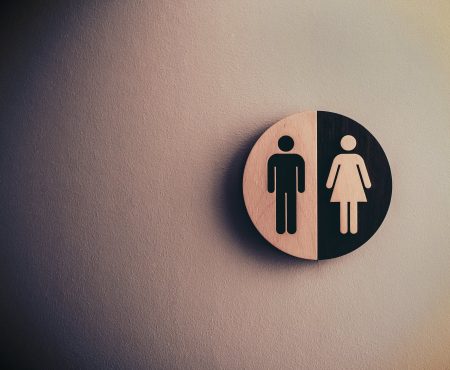Why do women inherit less than men in Islam, what is the historical background for this, what is their precise share of inheritance, and what does “equality” mean in the context of inheritance in Islam?
These are the main questions that will be addressed here in an obviously much shortened form. There is a wealth of material on this topic, and of course the breadth of this piece only allows for a consideration of those questions that are most likely of the greatest interest.
The historical background against which Islam introduced inheritance rights for women
Before the advent of Islam, the status of families was determined by the amount of property and chattels the families owned. Property included “livestock, shelter, farmland, crops, land, jewellery, clothes, weapons, slaves and sometimes women.” Women at this point in time had no status, so they themselves could not inherit anything; in fact, they themselves could be inherited by another man as property. Other world religions did not provide for the inheritance of women either: Hindu law and Zoroastrian law subjugated women to their fathers, husbands or brothers, and more often than not, the inheritance of a family’s estate would pass to the hands of the eldest son, technically referred to as primogeniture. This also applied to the doctrines in Catholicism, in which it was almost impossible for a woman to inherit property. In these religions, this pattern of “female exclusion” from the family estate continued until the end of the 19th century.
When Islam came, women were in the unfortunate position of being left destitute by their uncles, brothers and cousins, as they had not been given inheritance rights in their societies. It was also a custom in Arabian society that when a man died and his relatives inherited his wife, they could marry her to her husband’s kinsmen, or give her in marriage generally, and if not, they would be more entitled to dispose of her than her own relatives.
In this “Age of Ignorance” in pre-Islam Arabia, families were ashamed to learn that their newborn child was a girl, and many innocent baby girls were buried alive.
“Fractured from family relations, a woman’s role in society was merely to be an incubator.”
Islam changed all this.
From what is left by parents and those nearest related there is a share for men and a share for women, whether the property be small or large – a determinate share.
(Quran, Chapter Nisa’; 4:7)
This particular verse was revealed to the Prophet after a woman came to him with her daughter and complained that her brother-in-law had seized all her husband’s possessions, leaving her and her family impoverished. The Prophet demanded of the brother-in-law that he return all the property, and the Prophet then gave one-eighth to the wife, two-thirds to the daughters, and one-fifth to the paternal uncle.
The inheritance entitlements of a woman in Islam
Inheritance according to the Five Schools of Islamic Law is the same. Under Islamic law, a widow is entitled to receive one-fifth of her husband’s property after the payment of debts. If there was a child, she receives one-eighth. By comparison a widower receives half the inheritance, but again if there are children, he receives only one-fourth. The woman receives exactly half of the man’s entitlement.
An only daughter, who does not have a brother sharing the inheritance with her, will receive half of the inheritance.
Allah charges you in regard with your children: a son’s share is equal to the share of two daughters; if the [children] are [only] daughters and two or more, their share is two thirds of the legacy, and if there is only one daughter, her share is half [of the legacy]; and each of the parents inherit one-sixth of the legacy if the deceased had children, and if the deceased had no children and the parents are the only heirs, the mother inherits one-third; if the deceased had brothers, the mother inherits one-sixth; [all this is] after executing the will and settling the debts of the deceased. You do not know which of your parents and children benefit you the most. This is Allah’s injunction; surely Allah is All-Knowing, All-Wise.
(Quran, Chapter Nisa’; 4:11)
The reasoning behind the entitlements of the woman compared to the man
The woman’s inheritance rights are half that of the man; however, she is entitled to mahr (Bridal gift) and maintenance from the man she marries, and is free from defence of the community, so her lower inheritance is recompensed elsewhere. This is also referred to as the law of recompense. As soon as a woman marries, it is incumbent on the husband to care for his wife’s every need, and any dowry she receives remains her personal property. By comparison, a man must provide for his wife and other dependants, and he also shares in any inheritance with her, therefore his share in inheritance must be higher than that of the wife, so he is not dealt with unjustly either.
To benefit every one, God has appointed shares and heirs to property left by parents and relatives. To those, also, to whom your right hand was pledged, give their due portion.
(Quran, 4:33)
“Equality” with regard to women’s inheritance rights in Islam
“While Islamic laws concerning inheritance are not “equal” in the modernist sense, they are proportionate.” There is no “institutionalisation of injustice, misuse, cruelty or oppression.” Another word that is used in this context is “equivalent”; “in Islam, men and women have equivalent rights, including but not limited to working, acquiring wealth, possession of property, and the concept of inheritance.” In Islam, a woman is able to contract and manage her own business affairs, she can earn money, and keep all of it for herself, if she so desires. “Islam equalizes men and women in their creation, religious obligations, honor, and dignity.”
Islam regards men and women as pillars of their society: they both have a role in the formation and management of their society, and enjoy an equal share in all its parts. Before Islam, wealth remained in the hands of the few; Islamic laws were actually the first to provide for equity and restore justice to women. A woman can inherit as a mother, daughter, sister, and wife.
The concept of restoring justice to women and treating them equitably is also apparent beyond their inheritance rights: “there has never been a time, throughout Islamic history, when women were faced with discrimination in their pursuit of Islamic knowledge.”1 The concept of a woman in Islam is of a woman whose role goes far beyond that of the rearer of children in other religions and societies. Islam has not made housework obligatory on a woman, not even breastfeeding and the care of children. If a woman so desires, she can contract out these tasks, and if she is happy to carry them out herself, she is entitled to receive financial compensation.



All comments (0)